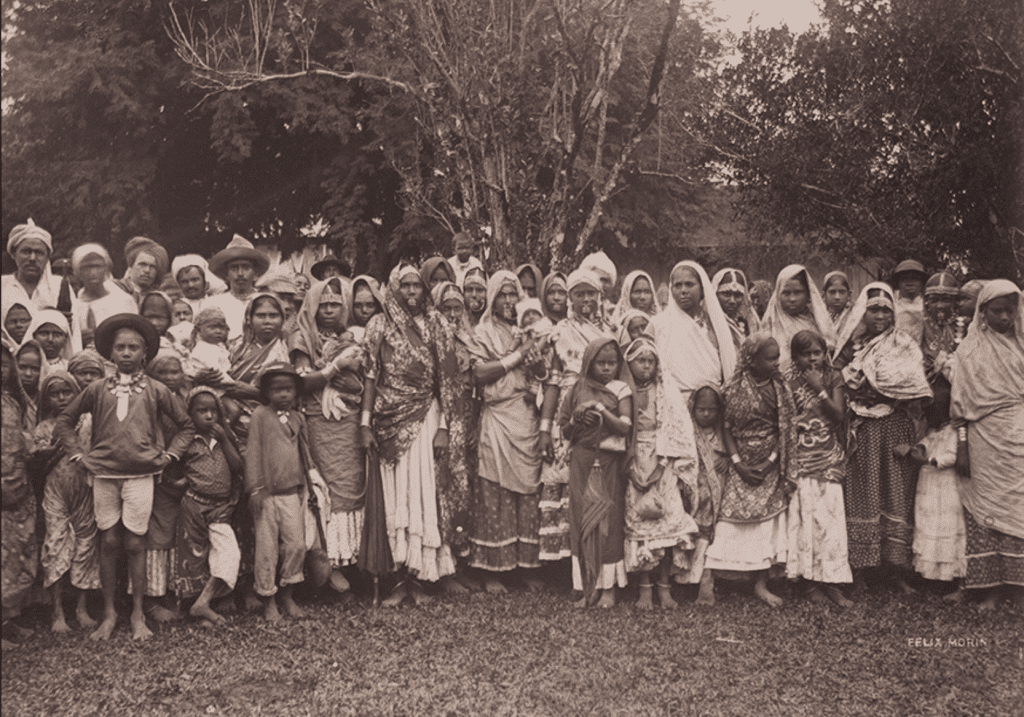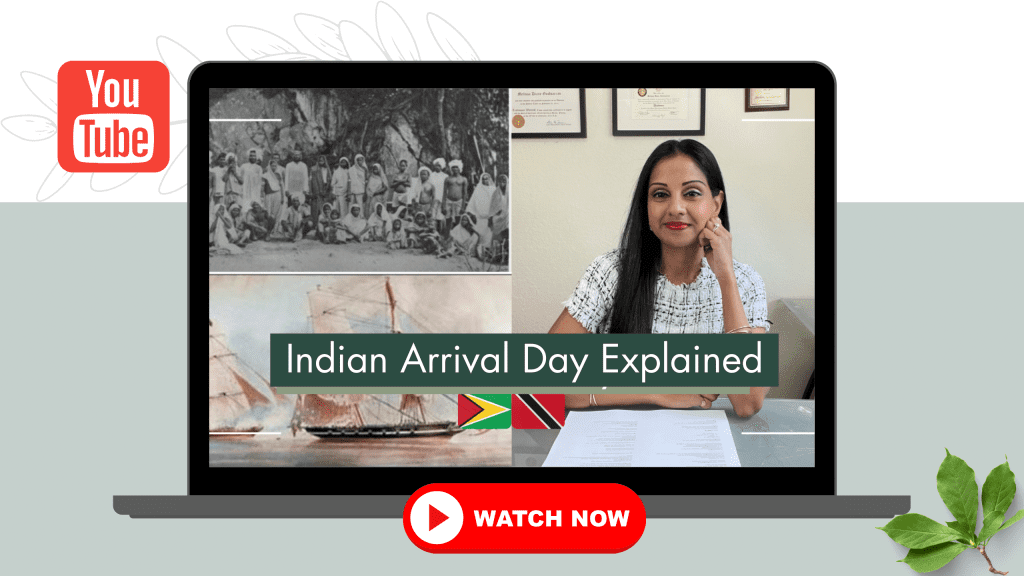Indian Arrival Day

The Caribbean has long been considered a melting pot of various cultures — mixing the cuisines, music, language, and practices of the people indigenous to the Caribbean with Africans, Indians, and other groups. The arrival of Indian indentured servants to the region is recognized across several countries, and is known as Indian Arrival Day.
The British implemented the indentured servitude system to replace the recently-abolished system of slavery. Indentured servants were recruited to work for 5 years and return to India. In reality, they were deceived into another inhumane scheme most were never able to return to their home.
What Is Indian Arrival Day?
Indian Arrival Day is an official holiday recognized on different dates among certain Caribbean nations where the British utilized the indentured servitude system. It commemorates the first arrival of Indian indentured laborers in the Caribbean.
The Whitby and Hesperus were the first ships that brought Indian indentured labourers to Guyana and the entire Caribbean on May 5, 1838.
In Trinidad, this happened on May 30, 1845, when almost 227 Indian immigrants were brought by the ship Fatel Rozack. In 1994, the day was made into an official public holiday. Click here to read more about the Fatel Rozack.
The holiday has different names in certain countries, such as Indian Heritage Day in Jamaica or Prawas Din in Suriname, as well as different holiday dates. However, the core reason and significance behind the recognition remains the same.
Indian Arrival Day Across the Caribbean
Indian Arrival Day has been honored in the past with music, dance, and other activities. Outstanding individuals are also often honored on this day for their contributions to the community. Some countries, like Trinidad and Tobago, also stage re-enactments of the momentous event across various beaches.
Different dates of remembrance mark the respective arrival dates of Indian laborers in different countries. Here are the dates to remember:
- Grenada: May 1
- Guyana: May 5
- Saint Lucia: May 6
- Jamaica: May 10
- Fiji: May 14
- Trinidad and Tobago: May 30
- Saint Vincent and the Grenadines: June 1
- Suriname: June 5
- Mauritius: November 2
- South Africa: November 16
Why Is It Important to Remember Indian Arrival Day?
The British’s indentured servitude system was inhumane– from the working conditions to the living conditions. 500,000 Indians endured indentureship in the Caribbean. Some returned to India but many more were forced to stay in the Caribbean and were not allowed to return to India.
The reason behind the arrival of these Indians is bittersweet. Although the historical events are tinged with sadness, prejudices, and mistreatment, it is now also recognized for the sacrifices that our ancestors made and had to endure.
Indian Arrival Day honors the contributions of Indian indentured laborers to the British colonies. It also serves as a reminder of what they overcame and how they helped pave the way for future generations.
The Takeaway
While this day marks the indentureship of Indians in the British colonies, it is the start of a new legacy. It is also the historic beginning of the fusion of Indian culture in the Caribbean.
Remembering the day it all began does not glorify the indentureship but rather honors the perseverance of our ancestors and reminds us of the hardships they went through to leave a better future for later generations.
References:
https://visittrinidad.tt/event/indian-arrival-day/?cn-reloaded=1
https://exploreguyana.org/event/indian-arrival-day/
https://en.wikipedia.org/wiki/Indian_Arrival_Day
By Melissa Ramnauth, Esq. | This content is copyright of West Indian Diplomacy, LLC and may not be reproduced without permission.
She runs West Indian Diplomacy, a Caribbean blog aimed at promoting West Indian history and business in the global marketplace. Melissa has been an attorney for over 10 years. She currently focuses on trademark registration, trademark searches, and office actions. She also has extensive legal experience in the areas of trademarks, copyrights, contracts, and business formations. She owns her own Trademark Law Firm that is virtually based out of Fort Lauderdale.
Please Sign Our
Petition to Preserve Our Ship Records
By Submitting this Form
This page may contain affiliate links and ads at no extra charge to you. If you purchase something from these links and ads, West Indian Diplomacy may earn a small commission that goes towards maintaining the website and sharing our history.
Book Recommendations
The First East Indians to Trinidad: Captain Cubitt Sparkhall Rundle and the Fatel Rozack
History of the People of Trinidad and Tobago
An Introduction to the History of Trinidad and Tobago

Legal Disclaimer
Your use of the content on this site or content from our email list is at your own risk. The use of this website does not create an attorney-client relationship. West Indian Diplomacy does not guarantee any results from using this content and it is for educational purposes only. It is your responsibility to do your own research, consult, and obtain a professional for your medical, legal, financial, health, or other help that you may need for your situation.
The information on West Indian Diplomacy is “as is” and makes no representations or warranties, express or implied, with respect to the content provided on this website or on any third-party website which may be accessed by a link from this Web site, including any representations or warranties as to accuracy, timeliness, or completeness. West Indian Diplomacy will not be liable for any losses, injuries, or damages from the display or use of this information.
All information on this website is accurate and true to the best of West Indian Diplomacy's knowledge, but there may be omissions, errors or mistakes. West Indian Diplomacy is not liable for any damages due to any errors or omissions on the website, delay or denial of any products, failure of performance of any kind, interruption in the operation and your use of the website, website attacks including computer virus, hacking of information, and any other system failures or misuse of information or products.
As of this date, West Indian Diplomacy does not write sponsored posts or accept free products for review. All thoughts and opinions written by West Indian Diplomacy is our own.
West Indian Diplomacy welcomes comments on blog posts. All comments submitted to us are the opinions of the author and do not necessarily reflect or represent the views, policies, or positions of this site. We reserve the right to use our own discretion when determining whether or not to remove offensive comments or images.
I am happy my ancestors are being remembered!!! I am one of Indian arrival from many generation, born in Guyana, this history is being taught in every schools in the country also the arrival with the other cultures ethnic races.